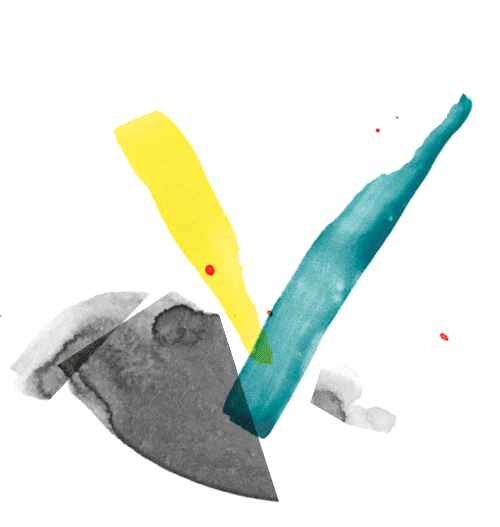

Sign up for our newsletters. You can change the settings or unsubscribe at any time.
Thank you for your subscription. We have sent you an e-mail with a confirmation link.


exp. 1
exp. 2
exp. 3

The Black Mamba – Natasha Mendonca & Suman Sridhar
Venue: KW Institute for Contemporary Art
The Black Mamba – Natasha Mendonca & Suman Sridhar
Founded 2012 in Mumbai, IN
Natasha Mendonca, born 1978 in Mumbai – lives and works in Mumbai
Suman Sridhar, born 1982 in Mumbai – lives and works in Mumbai
Land of the Breasted Woman, a live cinema performance by The Black Mamba featuring Suman Sridhar and Natasha Mendonca, is a queer feminist interrogation of gender, caste, and colonial oppression in India. The legendary Nangeli was an early nineteenth-century freedom fighter from Kerala who was hunted and murdered in a “suiciding” by the European colonizers, the ruling Indian upper caste, and aristocracy of her time for protesting the British-imposed colonial “breast tax.” Lower-caste women were forced to pay a fee in order to cover themselves in public. The bra and saree blouse are Victorian impositions on the Asian female body via taxation. Photographs from the colonial archives reveal a Victorian morality in their gaze. The Upper Cloth Mutiny, or Channar Revolt, one of the earliest documented anti-caste rebellions, abolished the colonial breast tax and was sparked by Nangeli’s life and death. Archival stills and 16mm film footage form the backdrop to poetry, narration, and songs spanning genres of hip-hop, Indian classical music, opera, experimental soundscapes, and field recordings that underscore the clash between oral history and colonial discourses. Who has the power to record the past, and whose account gets remembered? Land of the Breasted Woman is a contemporary funeral lament inspired by the South Asian oppari oral folk tradition of professional female mourners. The ode to the loss of an indigenous woman is a subversion of the tradition that is reserved for mourning the upper-caste male deceased, a performative deconstruction of colonialism and war as trafficking.
The Black Mamba – Natasha Mendonca & Suman Sridhar
IV: How Fear Can Dismantle a Body. Vis-a-Vis with two of four curators of the 11th Berlin Biennale
María Berríos, Lisette Lagnado
Conversation
Invitation to the Species: Cecilia Vicuña
Tamaas / Cecilia Vicuña
Podcast
THE MOBILIZATION
Nicolás Cuello
Text
Umbilical Cord Amulet
McCord Museum
Object
El primer nueva corónica y buen gobierno
Felipe Guamán Poma de Ayala
Chronicle
Glossary of Common Knowledge
L’Internationale Online
Glossary
By using this website you agree to the use of cookies in accordance with our data privacy policy.

The Black Mamba – Natasha Mendonca & Suman Sridhar
Venue: KW Institute for Contemporary Art
The Black Mamba – Natasha Mendonca & Suman Sridhar
Founded 2012 in Mumbai, IN
Natasha Mendonca, born 1978 in Mumbai – lives and works in Mumbai
Suman Sridhar, born 1982 in Mumbai – lives and works in Mumbai
Land of the Breasted Woman, a live cinema performance by The Black Mamba featuring Suman Sridhar and Natasha Mendonca, is a queer feminist interrogation of gender, caste, and colonial oppression in India. The legendary Nangeli was an early nineteenth-century freedom fighter from Kerala who was hunted and murdered in a “suiciding” by the European colonizers, the ruling Indian upper caste, and aristocracy of her time for protesting the British-imposed colonial “breast tax.” Lower-caste women were forced to pay a fee in order to cover themselves in public. The bra and saree blouse are Victorian impositions on the Asian female body via taxation. Photographs from the colonial archives reveal a Victorian morality in their gaze. The Upper Cloth Mutiny, or Channar Revolt, one of the earliest documented anti-caste rebellions, abolished the colonial breast tax and was sparked by Nangeli’s life and death. Archival stills and 16mm film footage form the backdrop to poetry, narration, and songs spanning genres of hip-hop, Indian classical music, opera, experimental soundscapes, and field recordings that underscore the clash between oral history and colonial discourses. Who has the power to record the past, and whose account gets remembered? Land of the Breasted Woman is a contemporary funeral lament inspired by the South Asian oppari oral folk tradition of professional female mourners. The ode to the loss of an indigenous woman is a subversion of the tradition that is reserved for mourning the upper-caste male deceased, a performative deconstruction of colonialism and war as trafficking.
The Black Mamba – Natasha Mendonca & Suman Sridhar
Glossary of Common Knowledge
L’Internationale Online
Glossary
A Moment of True Decolonization / Episode #6: Sinthujan Varatharajah. Constructing the Tamil Eelam State
The Funambulist / Sinthujan Varatharajah
Podcast
Hatred Among Us
Lisette Lagnado
Essay
Expresiones de la locura: el arte de los enfermos mentales
Hans Prinzhorn
Monograph
Weaving Solidarity
Renata Cervetto and Duygu Örs
Q&A
IV: How Fear Can Dismantle a Body. Vis-a-Vis with two of four curators of the 11th Berlin Biennale
María Berríos, Lisette Lagnado
Conversation
By using this website you agree to the use of cookies in accordance with our data privacy policy.

The Black Mamba – Natasha Mendonca & Suman Sridhar
Venue: KW Institute for Contemporary Art
The Black Mamba – Natasha Mendonca & Suman Sridhar
Founded 2012 in Mumbai, IN
Natasha Mendonca, born 1978 in Mumbai – lives and works in Mumbai
Suman Sridhar, born 1982 in Mumbai – lives and works in Mumbai
Land of the Breasted Woman, a live cinema performance by The Black Mamba featuring Suman Sridhar and Natasha Mendonca, is a queer feminist interrogation of gender, caste, and colonial oppression in India. The legendary Nangeli was an early nineteenth-century freedom fighter from Kerala who was hunted and murdered in a “suiciding” by the European colonizers, the ruling Indian upper caste, and aristocracy of her time for protesting the British-imposed colonial “breast tax.” Lower-caste women were forced to pay a fee in order to cover themselves in public. The bra and saree blouse are Victorian impositions on the Asian female body via taxation. Photographs from the colonial archives reveal a Victorian morality in their gaze. The Upper Cloth Mutiny, or Channar Revolt, one of the earliest documented anti-caste rebellions, abolished the colonial breast tax and was sparked by Nangeli’s life and death. Archival stills and 16mm film footage form the backdrop to poetry, narration, and songs spanning genres of hip-hop, Indian classical music, opera, experimental soundscapes, and field recordings that underscore the clash between oral history and colonial discourses. Who has the power to record the past, and whose account gets remembered? Land of the Breasted Woman is a contemporary funeral lament inspired by the South Asian oppari oral folk tradition of professional female mourners. The ode to the loss of an indigenous woman is a subversion of the tradition that is reserved for mourning the upper-caste male deceased, a performative deconstruction of colonialism and war as trafficking.
The Black Mamba – Natasha Mendonca & Suman Sridhar
Umbilical Cord Amulet
McCord Museum
Object
Género y colonialidad en busca de claves de lectura y de un vocabulario estratégico descolonial
Rita Segato
Essay
Being in Crisis together – Einander in Krisen begegnen
Feminist Health Care Research Group (Inga Zimprich/Julia Bonn)
Online workshop
Freiheit für Chile!
Anonymous
Photo album
I: Junto a las curadoras de la XI Berlin Biennale for Contemporary Art
Renata Cervetto, Lisette Lagnado
Conversation
Maternidades subversivas
María Llopis
Monograph
By using this website you agree to the use of cookies in accordance with our data privacy policy.

The Black Mamba – Natasha Mendonca & Suman Sridhar
Venue: KW Institute for Contemporary Art
The Black Mamba – Natasha Mendonca & Suman Sridhar
Founded 2012 in Mumbai, IN
Natasha Mendonca, born 1978 in Mumbai – lives and works in Mumbai
Suman Sridhar, born 1982 in Mumbai – lives and works in Mumbai
Land of the Breasted Woman, a live cinema performance by The Black Mamba featuring Suman Sridhar and Natasha Mendonca, is a queer feminist interrogation of gender, caste, and colonial oppression in India. The legendary Nangeli was an early nineteenth-century freedom fighter from Kerala who was hunted and murdered in a “suiciding” by the European colonizers, the ruling Indian upper caste, and aristocracy of her time for protesting the British-imposed colonial “breast tax.” Lower-caste women were forced to pay a fee in order to cover themselves in public. The bra and saree blouse are Victorian impositions on the Asian female body via taxation. Photographs from the colonial archives reveal a Victorian morality in their gaze. The Upper Cloth Mutiny, or Channar Revolt, one of the earliest documented anti-caste rebellions, abolished the colonial breast tax and was sparked by Nangeli’s life and death. Archival stills and 16mm film footage form the backdrop to poetry, narration, and songs spanning genres of hip-hop, Indian classical music, opera, experimental soundscapes, and field recordings that underscore the clash between oral history and colonial discourses. Who has the power to record the past, and whose account gets remembered? Land of the Breasted Woman is a contemporary funeral lament inspired by the South Asian oppari oral folk tradition of professional female mourners. The ode to the loss of an indigenous woman is a subversion of the tradition that is reserved for mourning the upper-caste male deceased, a performative deconstruction of colonialism and war as trafficking.
The Black Mamba – Natasha Mendonca & Suman Sridhar
Hatred Among Us
Lisette Lagnado
Essay
Freiheit für Chile!
Anonymous
Photo album
St Sara Kali George
Delaine Le Bas
Soundscape
II: La Solidaridad va Más Allá de un Concepto. Entre las Curadoras de la XI Berlin Biennale
Lisette Lagnado, Agustín Pérez Rubio
Conversation
Género y colonialidad en busca de claves de lectura y de un vocabulario estratégico descolonial
Rita Segato
Essay
Maternidades subversivas
María Llopis
Monograph
By using this website you agree to the use of cookies in accordance with our data privacy policy.
By using this website you agree to the use of cookies in accordance with our data privacy policy.




